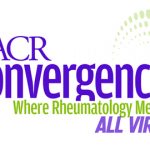
Sentavio / shutterstock.com
SNOWMASS VILLAGE, COLO.—Current trends in rheumatoid arthritis (RA) therapy are the increased use of newer medication categories, such as Janus kinase (JAK) inhibitors (Jakinibs) and biologics, and the rising costs of treatment. Unchanged is the consistent use of methotrexate as an effective therapy. These topics and more were discussed at the ACR Winter Symposium during the session, Update in RA Therapy: 2020, by Michael E. Weinblatt, MD, John R. and Eileen K. Riedman Professor of Medicine, Harvard Medical School, Boston, and R. Bruce and Joan M. Mickey Distinguished Chair in Rheumatology, Brigham and Women’s Hospital, Boston.
Dr. Weinblatt gives this talk every year, he said, because of the importance of the topic and the ever-changing world of therapeutics in RA. “The talk was really designed to update the audience on what’s currently being published in the field of [RA] and highlight some concepts that have been emphasized over the past couple of years.”
Topics of discussion included methotrexate, biologics, Jakinibs and issues in RA therapy, such as biosimilars and medication costs.
Methotrexate
Methotrexate remains the cornerstone of RA treatment, Dr. Weinblatt said, noting it’s currently the most common drug used to treat RA worldwide. The reason? It’s effective as a monotherapy and enhances other drugs’ efficacy when used in combination therapy. Also, one-third of patients who take it go into remission, and it’s relatively inexpensive.
Dosing is a key part of any discussion of methotrexate, because it’s effective when given at a therapeutic dose of 17.5–25 mg/week, Dr. Weinblatt said. However, a June 2017 publication in Arthritis Care & Research showed that of 35,640 patients who started methotrexate, only 37% were on doses higher than 15 mg/week before they were switched to a biologic.1
“Rheumatologists should dose escalate with methotrexate, and only after achieving doses of 20–25 milligrams per week should you think about adding another drug,” Dr. Weinblatt recommended. At these doses, because the bioavailability may be reduced, the drug should be administered either as a weekly subcutaneous injection or in two doses, once in the morning and once in the evening, once a week.
This modified regimen may also help address intolerance related to gastrointestinal distress, nausea and fatigue, which are the most common reasons patients stop taking methotrexate. Other options to minimize toxicities, said Dr. Weinblatt, are to lower the dose or to take supplements, such as folic acid or—if that fails—folinic acid at least eight hours after the methotrexate.
Biologics
Biologic therapies have been available for clinical use since 1998, Dr. Weinblatt said. A key concern with drugs that block tumor necrosis factor (TNF), or anti-TNF therapy, is the risk of flare after withdrawal.
Several studies show that patients taking a biologic and who do well for six to nine months but then abruptly stop treatment, the majority experience a disease flare. More concerning, in one study that looked at withdrawal specifically, 15% of patients were unable to get back to low disease activity after restarting therapy.2 Instead of abandoning treatment, it may be better to have patients who are doing well reduce their dose or extend the time between doses, Dr. Weinblatt said.
The risk of infection—in some cases, serious infections or hospitalization—with biologic therapy is well established. The use of corticosteroids—with or without anti-TNF therapy—is known to increase infection risk. For this reason, Dr. Weinblatt said, it’s important to get patients on as low a dose as possible of steroids or to get them off steroids all together.
Regarding the risk of major adverse cardiovascular events, a January 2020 study in Arthritis & Rheumatology concluded there was no increased risk among patients taking tocilizumab compared with etanercept.3
“This is reassuring for patients and clinicians,” Dr. Weinblatt said.
JAK Inhibitors
Jakinibs are a relatively new class of anti-rheumatic drugs that started being used clinically about eight years ago. Three Jakinibs are currently approved for use in the U.S.—tofacitinib, baricitinib and upadacitinib—with several more in development. Some of the perks are that Jakinibs are oral drugs, and “they work very fast, within a week,” said Dr. Weinblatt. “If you’re not better in eight weeks, they won’t work.”
The most recently approved Jakinib, upadacitinib, beat adalimumab in patients on background methotrexate in one randomized, blinded study, Dr. Weinblatt said.4 “This is the first time we’ve seen that: A JAK inhibitor plus methotrexate at the labeled dose in the [U.S.] beat adalimumab plus methotrexate statistically,” he added.
As with biologic therapies, Jakinibs have a known risk of infection—in particular, herpes zoster, which is hoped to be mitigated by the new shingles vaccine, although this needs to be studied, Dr. Weinblatt said. Other potential side effects include neutropenia, anemia, increased serum creatinine, liver function abnormalities, malignancy and, possibly, deep vein thrombosis (DVT) and pulmonary embolism (PE).
“The area of most concern now is this issue about leg clots and lung clots,” which first came to light in an April 2018 U.S. Food & Drug Administration (FDA) review of baricitinib, Dr. Weinblatt said. Information from Pfizer and the European Medicines Agency suggests older patients are particularly vulnerable.5-7
“What we know is that DVT and PE may be associated with use of selective JAK inhibitors—not all of them—but we don’t know what the mechanism behind it is,” Dr. Weinblatt said.
RA Issues: Cost & Biosimilars
A growing issue with RA therapy is the cost of treatment. Medicaid spending on biologics between 2013–2017 increased from $894 million to $3.1 billion, and Medicare spending between 2012–2017 increased from $4.3 billion to $10 billion, with only a modest increase in the number of patients being treated.8,9
One potential solution for the cost crisis in drug spending may be biosimilars. “Remarkable savings” have been seen in Europe with biosimilars, Dr. Weinblatt said. Although it’s unclear what the U.S. biosimilar market will look like, they could offer more cost-effective options for patients and physicians.
“We want the option to treat the patients that are appropriate with the drugs that are appropriate,” Dr. Weinblatt said. “Cost barriers are increasing, and the prior authorization process is becoming even more difficult. I hope biosimilars will give patients and rheumatologists the opportunity to prescribe the appropriate drugs without the current prior authorization hassles. We have made remarkable strides in the care of patients with RA, and we want this to continue.”
Kimberly Retzlaff is a freelance medical journalist based in Denver.
References
- Rohr MK, Mikuls TR, Cohen SB, et al. Underuse of methotrexate in the treatment of rheumatoid arthritis: A national analysis of prescribing practices in the US. Arthritis Care Res (Hoboken). 2017 Jun;69(6):794–800.
- Moghadam MG, Ten Klooster PM, Vonkeman HE, et al. Impact of stopping tumor necrosis factor inhibitors on rheumatoid arthritis patients’ burden of disease. Arthritis Care Res (Hoboken). 2018 Apr;70(4):516–524.
- Giles JT, Sattar N, Gabriel S, et al. Cardiovascular safety of tocilizumab versus etanercept in rheumatoid arthritis: A randomized controlled trial. Arthritis Rheumatol. 2020 Jan;72(1):31–40.
- Fleischmann R, Pangan AL, Song I-H, et al. Upadacitinib versus placebo or adalimumab in patients with rheumatoid arthritis and an inadequate response to methotrexate: Results of a phase III, double‐blind, randomized controlled trial. Arthritis Rheumatol. 2019 Nov;71(11):1788–1800.
- Lilly. Baricitinib (LY3009104): Rheumatoid Arthritis (briefing document). NDA 207924. FDA Advisory Committee Meeting. 2018 Apr 23.
- XELJANZ XR (tofacitinib): Increased risk of death/blood clots. Important safety information.
- Xeljanz to be used with caution for all patients at high risk of blood clots. European Medicines Agency. 2019 Oct 31.
- Dalal D, Zhang T, Shireman T. Medicaid spending (2013–2017) on disease modifying agents commonly used in rheumatoid arthritis [abstract]. Arthritis Rheumatol. 2019;71(suppl 10).
- Dalal D, Zhang T, Shireman T. Medicare spending (2012–2017) on disease modifying agents commonly used in rheumatoid arthritis [abstract]. Arthritis Rheumatol. 2019;71(suppl 10).

